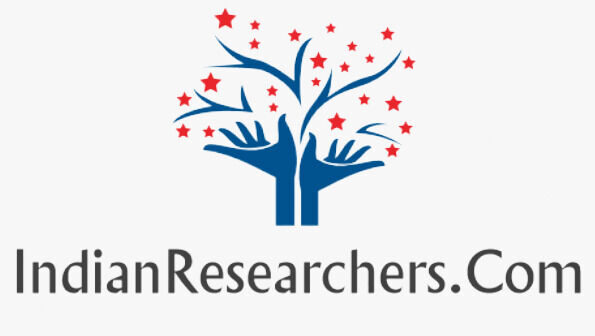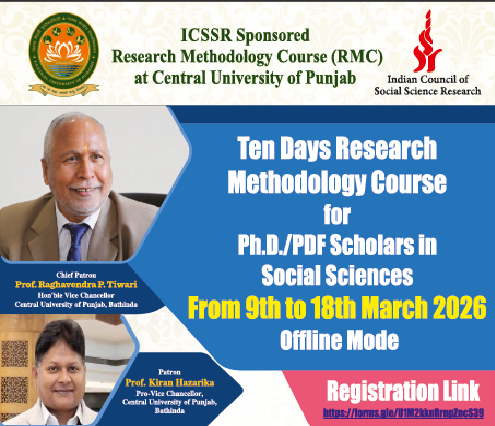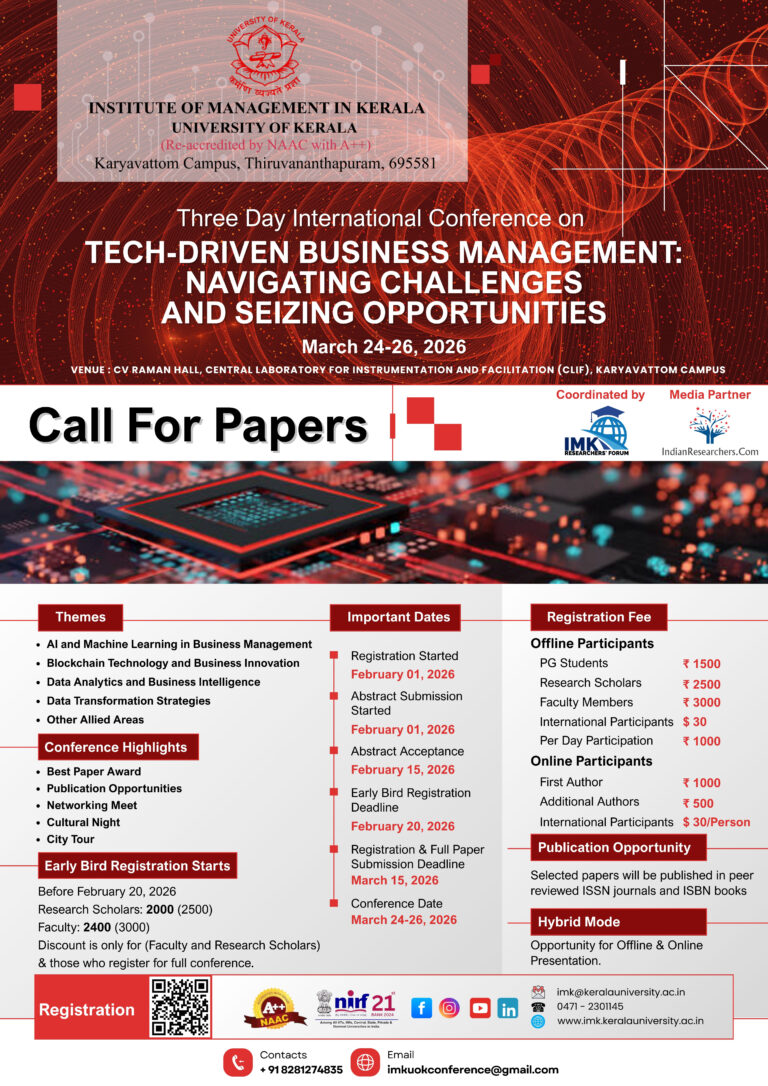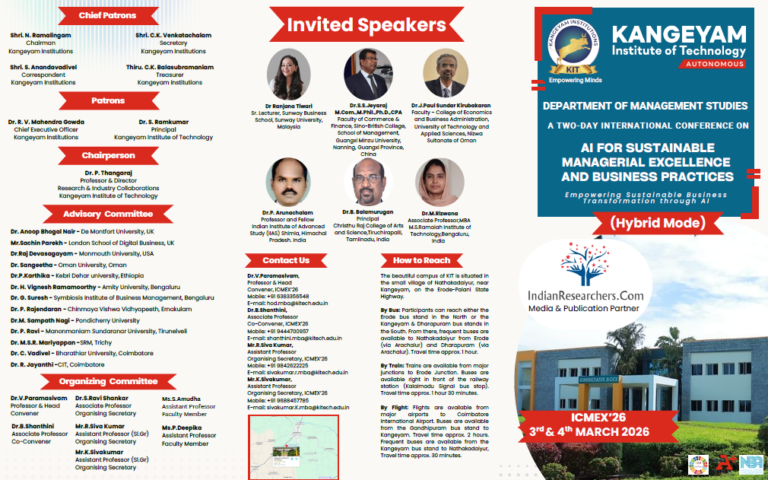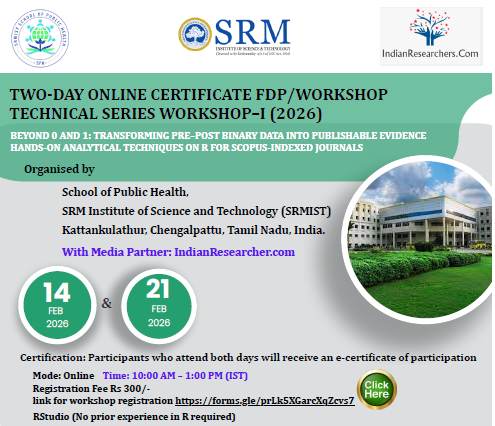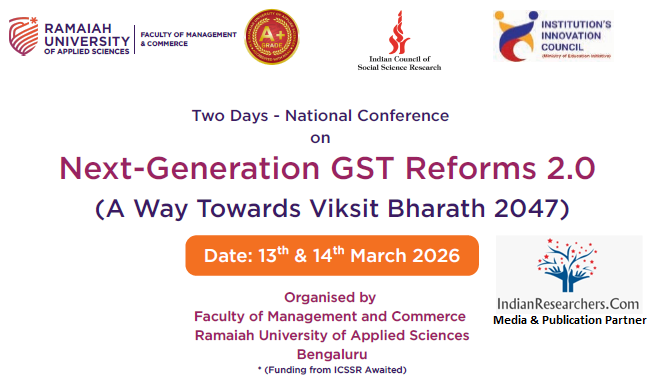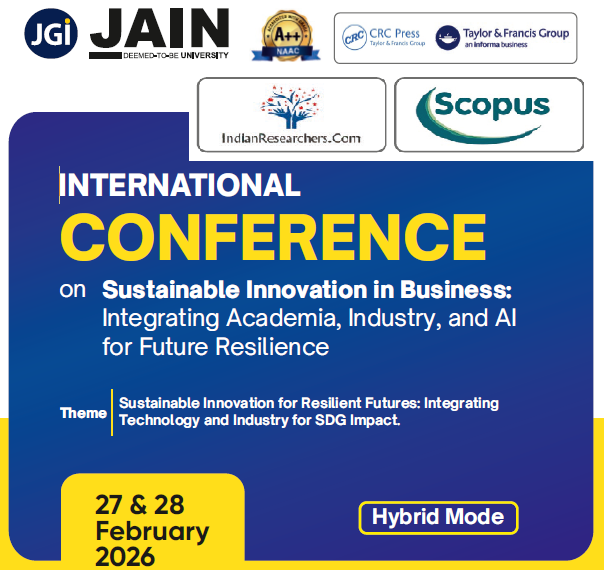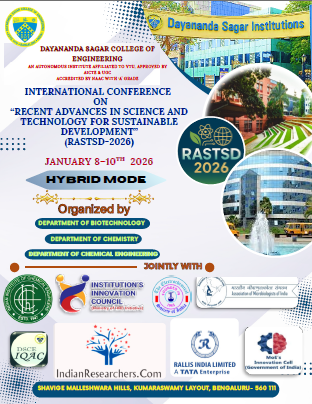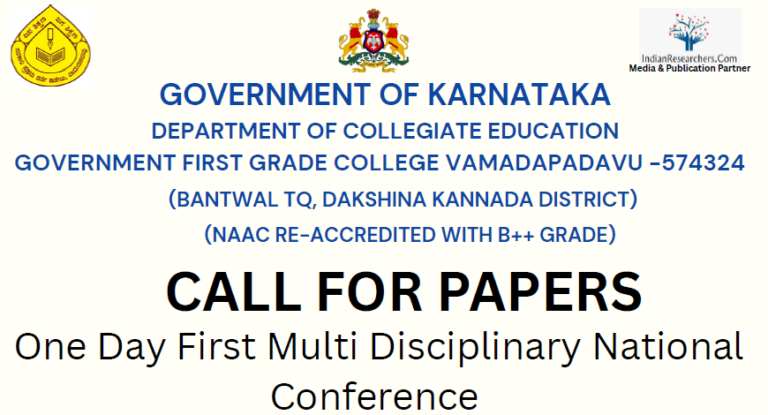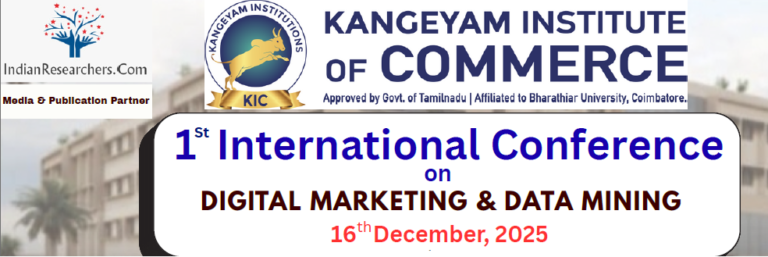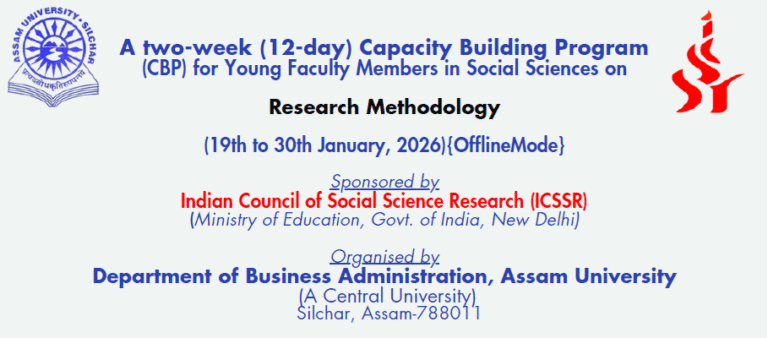The Department of Education, Central University of Punjab, Bathinda, is organizing a Ten Days Research Methodology Course...
IndianResearchers.Com Updates
The Institute of Management in Kerala (IMK), University of Kerala, is organizing a Three-Day International Conference on...
The Department of Management Studies, Kangeyam Institute of Technology (KIT), proudly announces a Two-Day International Conference on...
Transform Your Research: Master Pre-Post Binary Data Analysis for Scopus Journals SRMIST School of Public Health Announces...
Two-Day National Conference on Next-Generation GST Reforms 2.0 (A Way Towards Viksit Bharath 2047). This pivotal ICSSR-sponsored...
Media Partner: IndianResearchers.com Date: 27–28 February 2026 | Mode: Hybrid | Venue: JAIN (Deemed-to-be University), Bengaluru IndianResearchers.com...
Introduction:Dayananda Sagar College of Engineering (DSCE), an autonomous institute affiliated to VTU and accredited by NAAC with...
Government First Grade College Vamadapadavu is organizing a One Day First Multi-Disciplinary National Conference on the theme:...
The Department of B.Com Digital Marketing & Data Mining at Kangeyam Institute of Commerce (KIC) is proud...
Assam University, Silchar invites applications from eligible young faculty members for a prestigious Two-Week (12 Days) Capacity...
